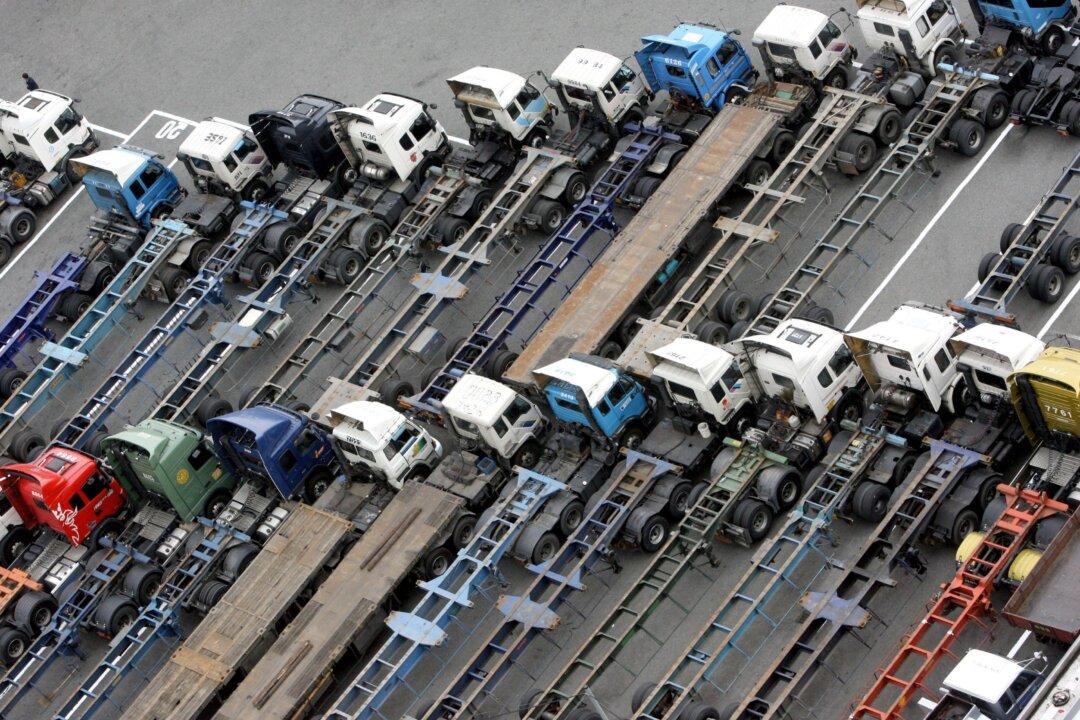SEOUL—Striking South Korean truckers are considering blocking shipments of coal to a power plant if the government rejects their demands for minimum pay guarantees, a senior trade union official said on Monday.
The Cargo Truckers Solidarity Union, on strike for a seventh day, is weighing several options to press its demands, including stopping coal to generate electricity and shutting down petrochemical complexes by blocking their shipments in and out.





